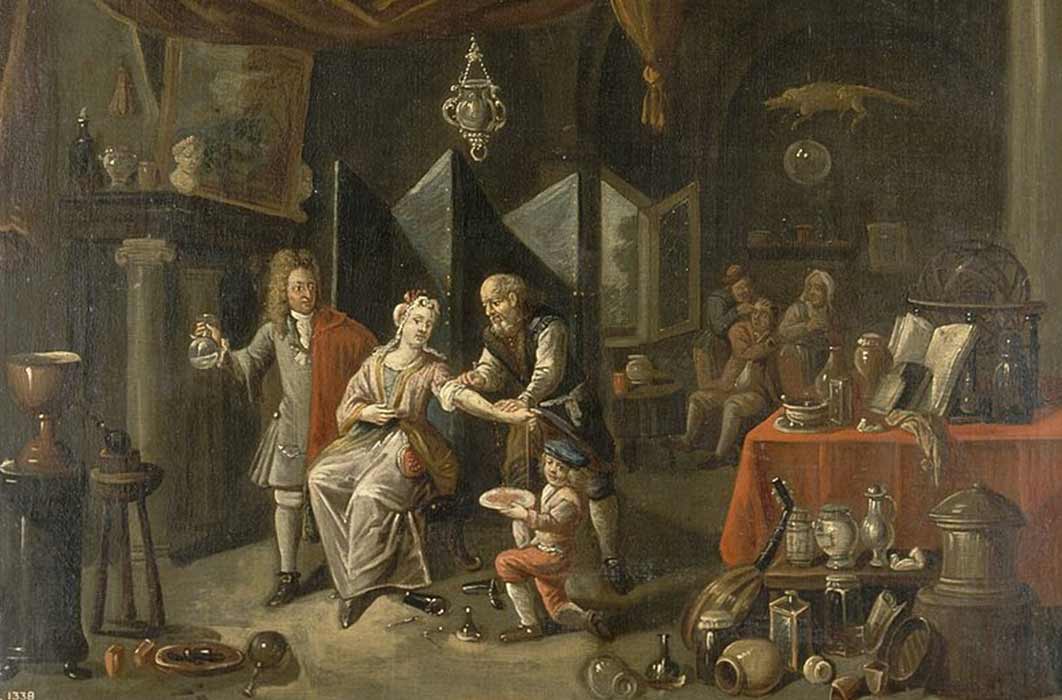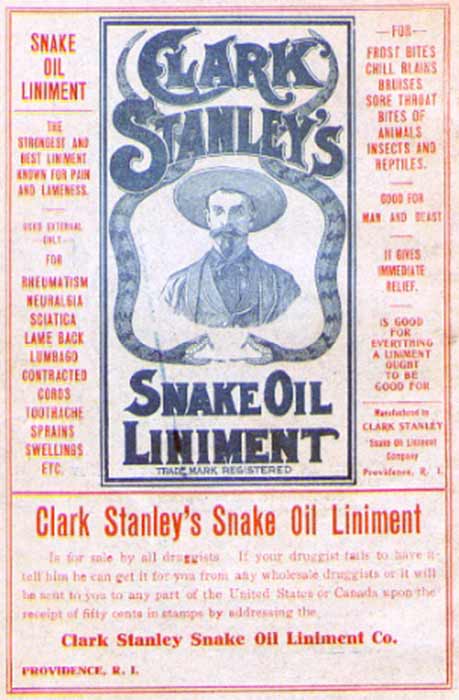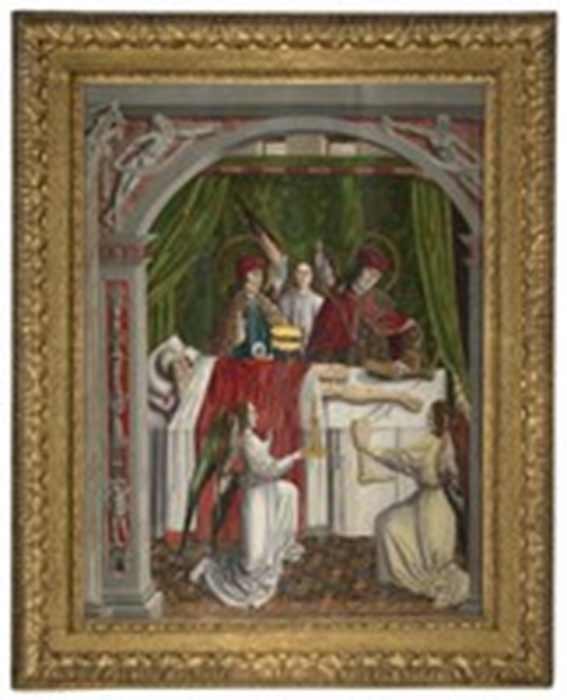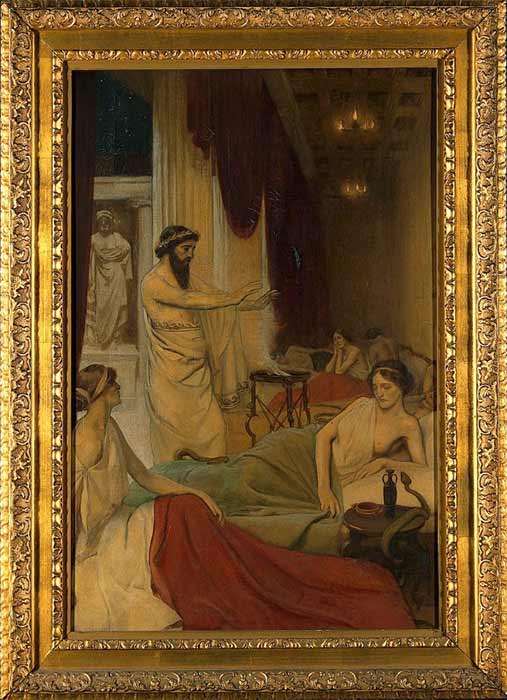
Nature’s Medicine Cabinet: Ancient Medicines, Remedies and Tinctures That Worked
When those unfortunate moments occur in life that require medical assistance, one should be thankful to be alive today and not even as far back as the last decade. Common ailments like halitosis may be treated with a fluorine based antibacterial toothpaste, but in historical times elephant bile was a great remedy. For less common conditions such as genital ulcers, the bile of a pythons might have been prescribed, and while modern medics treat warts with acids and lasers, in the ancient world snail slime was applied. Furthermore, when modern children cough, they get a sweet syrupy medicine to soothe their throats, but in some parts of the not so ancient world nothing was deemed better to cure a childhood cough than a dose of heroine. Some people also swished urine to whiten their teeth.

Clark Stanley's Snake Oil Liniment, True Life in the Far West, 200-page pamphlet illustration. Worcester, Massachusetts, (c. 1905) (Public Domain)
Ancient remedies may sound like a little shop of medical horrors, but as luck would have it, from this historical cabinet of greatly biologically-useless remedies, several cures emerged that modern science agrees have demonstrable medical properties. To the ancient ancestors, knowing the chemical properties of the plants and animals in the natural world, was actually a matter of life and death.
Patients in an Asclepeion in Ancient Greece (Wellcome Images/ CC BY-SA 4.0)
Tracking The Oldest Plant-Based Medicines In The World
To the modern man, the words ‘medicine’, ‘cures’ and ‘drugs’ conjure archetypal images of white rooms, red crosses, serious costs and insurance wrangles. Hospital waiting rooms and doctor’s surgeries are generally sterile spaces, permeated with associated smells and sounds which will eventually facilitate recovery, but for many even the sight of an ambulance recalls memories and fears of the pain and trauma promised by trips to the hospital, doctor or dentist. However, thousands of years ago a much different set of smells would have indicated medical environments - floral scents wafting from campfires where plants, fruits, berries and insects were stewed in the preparation of crude anti-septic bandages and swabs to treat hunting injuries.

Saints Cosmas and Damian performing a miraculous cure by transplantation of a leg by Master of Los Balbases (ca. 1495) (Wellcome Collection/ Public Domain)
Anthropologists often struggle to explain how in prehistoric times, before humans could read and write, often complex medicines and cures were passed down through many generations. What is understood, however, is that while the success of treating today’s patients is observed on screens and monitors, the afflicted in the ancient world depended only partly on the actual treatment, but more so on how supernatural energies helped or hindered the treatment of wounds and diseases.
- Neanderthals May have been Infected by Diseases carried out of Africa by Humans, say Researchers
- Neanderthals Took Care of Deaf and Disabled Buddy Until Old Age
- Ancient Herbal Medicine And What To Use At Home To Stay Healthy Today!
It is a fact that medicine was developed in prehistory greatly through trial-and-error. How prehistoric people knew about the inner mechanics of the human body is still a great scientific mystery, but anthropological evidence suggests people believed that spirits determined their fates and that those spirits resided in plants, trees and other natural environmental features. Because medicinal plants and herbs do not all grow in one place, perhaps in prehistoric times local supplies simply were not enough to sustain communities, and this may be one inspiration why prehistoric tribes were mostly nomadic, often traveling long distances to gain resources unavailable locally. It is unclear when prehistoric medical crafts first emerged in different societies and became somewhat formalized, but so far as hard archaeological evidence is concerned, the first signs of medicine arose around 60,000 years ago in what is today Iraq.





